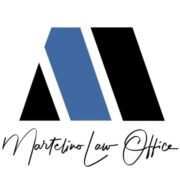Best Juvenile Law Lawyers in San Juan
Share your needs with us, get contacted by law firms.
Free. Takes 2 min.
List of the best lawyers in San Juan, Philippines
About Juvenile Law in San Juan, Philippines
Juvenile Law in San Juan, Philippines, is governed by both national legislation and local ordinances. At the national level, the Juvenile Justice and Welfare Act of 2006 (Republic Act No. 9344) is pivotal in providing a framework for the welfare and protection of children in conflict with the law. This law emphasizes restorative justice and aims to reintegrate juveniles into society as productive members. It considers children aged 15 years and below exempt from criminal liability but may undergo intervention programs. Those between 16 and 17 are also spared criminal liability unless they act with discernment, in which case they may face appropriate interventions.
Why You May Need a Lawyer
Legal assistance in Juvenile Law can be vital in several situations. Here are common scenarios where a lawyer's guidance may be necessary: when a child is arrested or detained, families needing to navigate intervention programs, situations where legal rights of juveniles are violated, when challenging decisions by schools or social services, and cases involving complex custody or guardianship issues.
Local Laws Overview
San Juan aligns with national laws but also has local ordinances that further guide Juvenile Law, focusing on diversion programs and community-based rehabilitation. The local government collaborates with the Department of Social Welfare and Development (DSWD) to ensure that rehabilitative services and educational interventions are available for minors. Advocating for child rights and legal aid support are integral components of these local laws.
Frequently Asked Questions
What is the age of criminal responsibility in San Juan?
The age of criminal responsibility in the Philippines, including San Juan, is set at 15 years. However, children aged 15 and below are exempt from criminal liability.
What happens if a juvenile commits a crime?
A child aged 15 and below will not face criminal charges but may be subjected to an intervention program. Those aged 16 to 17 may be held liable if they acted with discernment.
What are intervention programs?
These are community-based programs aimed at rehabilitating juveniles rather than punishing them, often involving counseling, skills training, and education.
Can a juvenile be detained in a regular jail?
No, juveniles cannot be detained with adult offenders and must be placed in a youth detention facility or released to guardians with an appropriate intervention plan.
What is a diversion program?
Diversion programs offer an alternative to formal court proceedings, allowing juveniles to take responsibility and make amends through non-judicial measures.
Can a juvenile court decision be appealed?
Yes, a juvenile court decision can typically be appealed if there are grounds to challenge the decision legally.
What role do parents play in juvenile cases?
Parents or guardians play a crucial role in supporting the juvenile through the legal process and participating in intervention programs.
How can a lawyer assist in juvenile cases?
A lawyer can provide legal representation, ensure rights are upheld, negotiate on the minor's behalf, and aid in understanding the complexities of juvenile law.
Are there free legal services available for juveniles?
Yes, legal aid services are often available through non-profit organizations, government agencies, and public attorney's offices for eligible families.
What is the role of the DSWD in juvenile cases?
The DSWD plays an integral role in providing rehabilitation programs and support services for juveniles under intervention plans or rehabilitation orders.
Additional Resources
For further assistance, consider reaching out to the following organizations and bodies: the Department of Social Welfare and Development (DSWD) office, the Public Attorney's Office (PAO) of San Juan, non-governmental organizations focused on child welfare, and local legal aid clinics.
Next Steps
If you require legal assistance in Juvenile Law, start by contacting a licensed attorney who specializes in juvenile cases in San Juan. Alternatively, reach out to the Public Attorney's Office or local NGOs for initial guidance. Keep records of all related legal documents, and actively participate in intervention or diversion programs as advised by legal counsel.
Lawzana helps you find the best lawyers and law firms in San Juan through a curated and pre-screened list of qualified legal professionals. Our platform offers rankings and detailed profiles of attorneys and law firms, allowing you to compare based on practice areas, including Juvenile Law, experience, and client feedback.
Each profile includes a description of the firm's areas of practice, client reviews, team members and partners, year of establishment, spoken languages, office locations, contact information, social media presence, and any published articles or resources. Most firms on our platform speak English and are experienced in both local and international legal matters.
Get a quote from top-rated law firms in San Juan, Philippines — quickly, securely, and without unnecessary hassle.
Disclaimer:
The information provided on this page is for general informational purposes only and does not constitute legal advice. While we strive to ensure the accuracy and relevance of the content, legal information may change over time, and interpretations of the law can vary. You should always consult with a qualified legal professional for advice specific to your situation.
We disclaim all liability for actions taken or not taken based on the content of this page. If you believe any information is incorrect or outdated, please contact us, and we will review and update it where appropriate.









